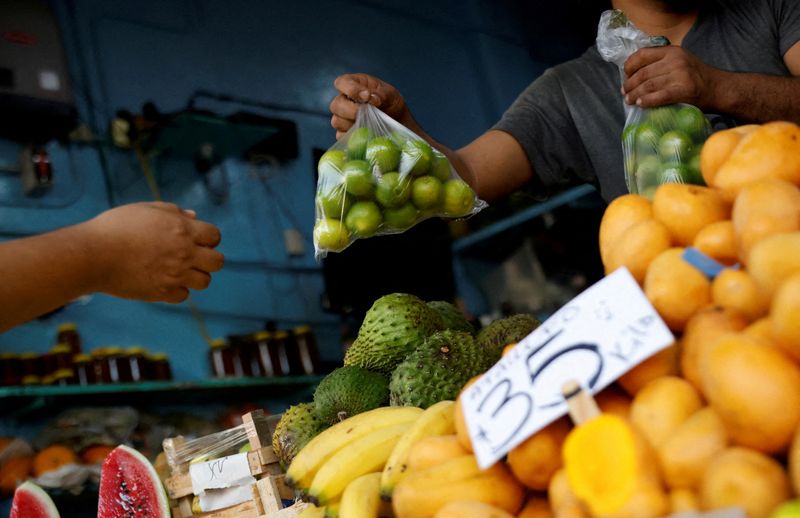By Natalia Siniawski
(Reuters) -Mexico's headline inflation rate rose again in July, reaching a level not seen in over a year, while the core index showed signs of moderation, according to data released by statistics agency INEGI on Thursday.
Annual headline inflation in Latin America's second-largest economy hit 5.57% in July, in line with expectations in a Reuters poll but surpassing June's figure of 4.98% and reaching a level not seen since May of last year.
The inflation surge in July is expected to complicate the Mexican central bank's potential efforts to reduce its benchmark interest rate.
At the end of June, the bank decided to hold interest rates steady, after lowering it in March for the first time since it began its restrictive cycle in mid-2021. The bank noted that slowing inflation could pave the way for cuts.
The rise in the headline rate, alongside weakness in the peso, means the bank's interest rate decision later on Thursday would be a very "close call between a cut and a hold," said Kimberley Sperrfechter, emerging markets economist in Capital Economists.
Meanwhile, the closely watched core index, which is considered a more reliable measure of price trends as it excludes volatile energy and food prices, continued its annual decline, hitting 4.05% in the 12 months through July.
In June, annual core inflation reached 4.13%.

The results confirm that temporary factors continue to drive headline inflation pressures, but softening private demand continues to push core inflation lower, said Andres Abadia, Pantheon Macroeconomics' chief Latin America economist.
"The near-term outlook has deteriorated due to global turmoil. But the lagged effect of tight financial conditions and increased policy uncertainty will help keep inflation relatively moderate, in the very near term," he added.